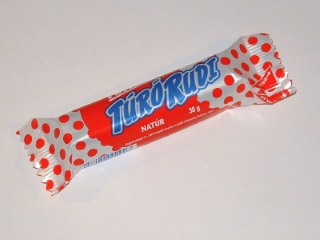| layout | title |
|---|---|
page |
Expressing Interest |
To express general liking in Hungarian, you don't necessarily like something, but rather that something appeals to you. To achieve this, the verb tetszik is used in its third-person form and the dative case marks who it appeals to.
If you want to be even more casual, you can replace tetszik with bejön.
These are the relevant conjugations to express general interest, to see the full verb conjugation click here. Don't forget you can change past to past conditional by adding volna!
| Pronoun | Past indef. | Present indef. | Present indef. cond. |
|---|---|---|---|
| ő | tetszett | tetszik | tetszene |
| ők | tetszettek | tetszenek | tetszenének |
- Sok embernek tetszik az új film. - (Many people like the new film. lit. The new film appeals to many people).
- Neked sem tetszik? - (Do you not like it either? lit. Does it not appeal to you either?)
- Nekem tetszik Éva. - (I have a crush on Éva lit. Éva appeals to me.)
The person who it appeals to can be omitted, from which context tells who that person is.
- Ennyi az egész, reméljük tetszett. - (That's all, we hope you liked it. lit. The whole was this much, We hope it appealed.)
- Tetszik? Igen tetszik. - (Do you like it? Yes I like it. lit. Does it appeal? Yes it appeals.)
- Azt gondoltad, hogy ez tetszene nekem? - (Did you think that I would like this? lit. Did you think that this would appeal to me?)
Ha tetszett ez a videó, lájkolj, kommentelj és iratkozz fel! (Free image by Michael Hiraeth, fetched from pixabay.com)
If you liked this video, liked, comment and subscribe!
To express your taste for food, you can use the verb ízlik in its third-person form. Similar to tetszik, something tastes good to you, so the dative case is used for the same purpose here. Naturally, the person who it tastes good to can be omitted as well!
Here are the relevant conjugations, to see all of them click here.
| Pronoun | Past indef. | Present indef. | Present indef. cond. |
|---|---|---|---|
| ő | ízlett | ízlik | ízlene |
| ők | ízlettek | ízlenek | ízlenének |
- Hogy ízlik? - (How does it taste to you?)
- Ízlik a vörösbor. - (I like red wine lit. Red wine tastes good to me.)
- Nem hiszem, hogy ízlene neki ez az üditőital. - (I don't think that he/she would like this soft drink. lit. I don't believe that this soft drink would taste good to him/her.)
Kinek ízlik a túró rudi? (Free photo by Uhi, fetched from hu.wikipedia.org)
Who likes túró rudi?
If you find something attractive or enticing rather than appealing, you can use vonz. The accusative is used because these somethings attract/entice you, which is something direct.
This only shows relevant conjugations, to see all of them click here.
| Pronoun | Past indef. | Past def. | Present indef. | Present def. | Present indef. cond. | Present def. cond. |
|---|---|---|---|---|---|---|
| ő | vonzott | vonzotta | vonz | vonzza | vonzana | vonzaná |
| ők | vonzottak | vonzották | vonzanak | vonzzák | vonzanának | vonzanák |
If the direct object is a name, then vonz takes on definite conjugation.
- Az nem vonzana sok turistát. - (That would not attract many tourists.)
- Vonzanának a flancos éttermek, ha nem kéne jattot adnom. - (Fancy restaurants would attract me, if I did not have to tip.)
- A trón úgy vonzotta Simbát. (The throne attracted Simba so much.)
Barnabás: Hova szeretnél elutazni? (Free photo by Emanuela Picone, fetched from unsplash.com)
Alex: Ausztrália és Új Zéland vonzanak engem, mert tetszik az ottani kultúra.
Where would you like to travel?
Australia and New Zealand attract me, because I like the culture over there.
You can use érdekel to show that something intrigues, interests or concerns you. It uses the direct object (usually omitted), as the verb literally means it interests. See also érdekes - interesting.
Here are the relevant conjugations, to see all of them click here.
| Pronoun | Past indef. | Present indef. | Present indef. cond. |
|---|---|---|---|
| ő | érdekelt | érdekel | érdekelne |
| ők | érdekeltek | érdekelnek | érdekelnének |
- Nem érdekel az iskola! - (School does not interest (me)!)
- Érdekelnének a szálloda árai, szobát szeretnék foglalni. - (The hotel prices would interest (me), I would like to reserve a room.)
To express your enjoyment for things, use kedvel (not to be confused with kedvvel). Like vonz, kedvel is a transitive verb and makes use of the accusative rather than the dative.
For confessing your feelings. saying "I love you" is a brave thing to say, using kedvellek is a less awkward thing to say, for the same intended meaning.
Some conjugations have been omitted due to prior explanations, to see all of them click here.
| Pronoun | Past indef. | Past def. | Present indef. | Present def. | Present indef. cond. | Present def. cond. |
|---|---|---|---|---|---|---|
| én | kedveltem | kedveltem | kedvelek | kedvelem | kedvelnék | kedvelném |
| te | kedveltél | kedvelted | kedvelsz | kedveled | kedvelnél | kedvelnéd |
| ő | kedvelt | kedvelte | kedvel | kedveli | kedvelne | kedvelné |
| mi | kedveltünk | kedveltük | kedvelünk | kedvelük | kedvelnénk | kedvelnénk |
| ti | kedveltetek | kedveltétek | kedveltek | kedvelitek | kedvelnétek | kedvelnétek |
| ők | kedveltek | kedvelték | kedvelnek | kedvelik | kedvelnének | kedvelnék |
| én <-> téged | ----- | kedveltelek | ----- | kedvellek | ----- | kedvelnélek |
- Nem kedvelem a horrorfilmeket. - (I don't enjoy horror films.)
- Hogyhogy nem kedveled őt? - (How come you don't like him/her?)
- Péter mindig kedvelte a kockázatot, igaz? - (Péter always enjoyed (taking) risks, right?)
- De Alex, talán jobban kedvelnének, ha nem lennél mindig annyira mérges. - ( But Alex, maybe they would like you better if you weren't always so angry.)
Another way to translate kedvel could be to fancy something/someone.
If you casually like something then you can use bír, which among other meanings has a meaning which translates closely to I dig it but without sounding like slang.
For people, you can bír a friend, classmate, teacher, shopkeeper or whoever.
Click here to see all conjugations.
| Pronoun | Past indef. | Past def. | Present indef. | Present def. | Present indef. cond. | Present def. cond. |
|---|---|---|---|---|---|---|
| én | bírtam | bírtam | bírok | bírom | bírnék | bírnám |
| te | bírtál | bírtad | bírsz | bírod | bírnál | bírnád |
| ő | bírt | bírta | bír | bírja | bírna | bírná |
| mi | bírtunk | bírtuk | bírunk | bírjuk | bírnánk | bírnánk |
| ti | bírtok | bírjátok | bírtatok | bírtátok | bírnátok | bírnátok |
| ők | bírtak | bírták | bírnak | bírják | bírnak | bírják |
| én <-> téged | ----- | bírtalak | ----- | bírlak | ----- | bírnálak |
- Szerintem bírná a kínai kaját. (I think she would like chinese food.)
- Bírom A Gyűrűk Ura filmeket. - (I like The Lord of The Rings films.)
- Tökre bírlak, de csak mint barát. - (I totally like you, but just as a friend.)
Note: tökre is slang.
To express what you like and love for someone, use szeret.
Click here to see all conjugations.
| Pronoun | Past indef. | Past def. | Present indef. | Present def. | Present indef. cond. | Present def. cond. |
|---|---|---|---|---|---|---|
| én | szerettem | szerettem | szeretek | szeretem | szeretnék | szeretném |
| te | szerettél | szeretted | szeretsz | szereted | szeretnél | szeretnéd |
| ő | szeretett | szerette | szeret | szereti | szeretne | szeretné |
| mi | szerettünk | szerettük | szeretünk | szeretjük | szeretnénk | szeretnénk |
| ti | szerettetek | szerettétek | szerettek | szeretitek | szeretnétek | szeretnétek |
| ők | szerettek | szerették | szeretnek | szeretik | szeretnének | szeretnék |
| én <-> téged | ----- | szerettelek | ----- | szeretlek | ----- | szeretnélek |
- János és Zsuzsi egymásba beleszerettek, és született egy kisfiuk, Áron. - (János and Zsuzsi fell in love with each other, and they had (birthed) a little boy, Áron. lit.
- A testvérem voltál Anakin. Szerettelek! - ((Quote: ObiWan - Star Wars III) You were my brother (sibling) Anakin. I loved you!)
- Szeretem a lovakat, ismerem a szokásaikat és az eszük járását. - (I love horses, I know their ways and how they think (lit. how their minds walk)).
- Ez azt a komoly kérdést veti fel, hogy milyen jövőt szeretnénk a gyerekeinknek. - (This raises the serious question, what kind of future would we like for our children?)
To express your passion or adoration for things use imád.
For people one can use imád to worship or express stronger love or cherishment.
Click here to see all conjugations.
| Pronoun | Past indef. | Past def. | Present indef. | Present def. | Present. indef. cond. | Present. def. cond. |
|---|---|---|---|---|---|---|
| én | imádtam | imádtam | imádok | imádom | imádnék | imádnám |
| te | imádtál | imádtad | imádsz | imádod | imádnál | imádnád |
| ő | imádott | imádta | imád | imádja | imádna | imádná |
| mi | imádtunk | imádtuk | imádunk | imádjuk | imádnánk | imádnánk |
| ti | imádtatok | imádtátok | imádtok | imádjátok | imádnátok | imádnátok |
| ők | imádtak | imádták | imádnak | imádják | imádtak | imádták |
| én <-> téged | ----- | imádtalak | ----- | imádlak | ----- | imádnálak |
- Bogi imád mindent, ami szép. - (Bogi adores all that is beautiful.)
- Imádtam focizni, ennek ellenére rosszul játszottam. - (I loved to play football, even though I played badly.)
- Ha Siri jobb lenne, akkor mindenki imádná az új iPhone-t. - (If Siri were better, then everyone would love the new iPhone.)
Szerelem (noun) is the romantic love reserved only for one's partner. The act of falling in love is expressed with beleszeret but the state of being in love is expressed with szerelmes. Not to be confused with the verb szerel.
Rómeó beleszeretett Júliába. (Free image by Alexas Fotas, fetched from pixabay.com)
Romeó fell in love with Júlia.
There are all sorts of lovey-dovey names that people use for their partners, here are a few:
- Drágám - (My precious)
- Édesem - (My sweet)
- Kedvesem - (My dear)
- Szívem - (My heart)
- Szerelmem - (My love)
Bogi and Áron are talking, try to work out what they are saying! Taken from Kiliki a Földön, Episode 7
Á: Mi?
B: Nem mi, hanem ki. Hát Timi, Kelemen Timi.
Á: Ja ő, nem tudom. Hát kedves lány, meg szép a szeme és ő is szereti az autókat.
B: Szóval szerelmes vagy. Szerelmes vagy! Szerelmes vagy!
Á: Nem vagyok szerelmes, csak szimpatikus és kész.
Á: What?
B: Not what, but rather who. Well it's Timi, Timi Kelemen.
Á: Oh her, I don't know. Well she's a nice girl, plus her eyes are pretty and she even likes cars.
B: So you're in love. You're in love! You're in love!
Á: I'm not in love, she's just likeable and that's it.
bele-is a coverb
Got questions? Join our discord server!: https://discord.gg/VsqppQ6



